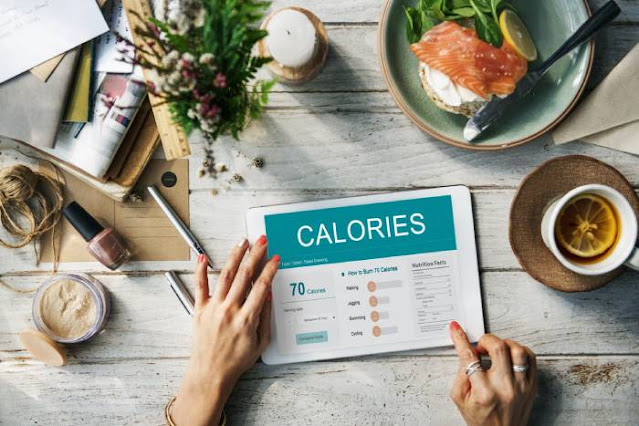How to Overcome Food Guilt and Cultivate a Healthy Relationship with Eating

How to Overcome Food Guilt and Cultivate a Healthy Relationship with Eating
Introduction (100 words):
Food guilt isa commonplace emotional response to indulging in foods which might be regularly labeled as "dangerous" or "forbidden." This terrible courting with meals can lead to stress, anxiety, and an bad cycle of restrictive ingesting and binging. In this text, we will search the reasons at the back of food guilt, the impact it has on our mental and physical well-being, and practical strategies to overcome it. By cultivating a effective and balanced relationship with meals, you can experience a more healthy, happier, and more sustainable approach to ingesting.
Understanding Food Guilt (one hundred fifty words):
Food guilt is a complicated emotional reaction that could stem from diverse resources, such as societal pressures, diet lifestyle, non-public beliefs, and beyond reviews. It regularly includes emotions of shame, regret, and self-grievance associated with consuming particular meals or overindulging. Some commonplace reasons for meals guilt include:
Diet Culture: The pervasive affect of food plan culture promotes "suitable" and "awful" foods, fostering a experience of guilt while indulging inside the latter.
Social Expectations: Peer pressure and social situations can cause food choices that cause guilt, especially after they deviate from perceived norms.
Body Image Concerns: Individuals suffering with frame picture issues often sense guilt when they consume ingredients they accept as true with contribute to weight advantage.
Past Dieting Experiences: Repeated weight-reduction plan or weight loss tries can lead to a harmful cyle of guilt and overeating.
The Impact of Food Guilt (one hundred fifty words):
Food guilt takes a toll on each mental and bodily well-being:
Emotional Distress: Food guilt can cause bad feelings like disgrace, anxiety, and self-criticism, that could erode overall mental health.
Disordered Eating: It can make contributions to disordered consuming patterns, along with binge eating, emotional ingesting, or orthorexia, an obsession with wholesome eating.
Weight Gain: Paradoxically, food guilt can cause weight benefit because it often triggers emotional ingesting and overindulgence.
Decreased Enjoyment: Guilt can lessen the pleasure of consuming, making it harder to appreciate and delight in meals.
Impaired Digestion: Stress brought about with the aid of food guilt can impact digestion, main to sorenes
Strategies to Overcome Food Guilt (400 words):
Practice Mindful Eating: Engage in conscious ingesting, which includes savoring every chew, consuming without distractions, and being attentive to your frame's starvation and fullness cues. This technique enables you end up extra attuned on your frame's needs and forestalls overindulgence pushed via guilt.
Challenge Diet Culture: Recognize and assignment the food plan tradition's impact for your perceptions of meals. Understand that food is not inherently "right" or "terrible," and labeling it as such is unhelpful. Consider the wider context of your usual weight-reduction plan instead of character meals choices.
Ditch Restrictive Diets: Avoid excessive diets that foster a cycle of deprivation and indulgence. Opt for balanced and sustainable consuming patterns that allow for infrequent indulgences with out guilt.
Reframe Negative Thoughts: When food guilt arises, exercise cognitive reframing. Challenge negative mind about meals and your frame by using replacing them with high quality, self-compassionate ones. For example, in preference to "I shouldn't have eaten that," say, "I loved that deal with, and it is k."
Separate Food from Moral Value: Food picks don't outline your well worth as a person. Recognize that eating a specific food does no longer make you a "desirable" or "awful" man or woman; it's absolutely a desire you made in that moment.
Forgive Yourself: Understand that everyone overindulges or makes selections they remorse occasionally. Forgive yourself and pass on rather than dwelling on beyond food-associated decisions.
Avoid Food Policing: Refrain from commenting on other human beings's food alternatives or policing their ingesting conduct. Promote a supportive, non-judgmental surroundings for your self and those round you
Positive Self-Care: Shift your attention from meals guilt to self-care. Engage in sports that nurture your physical and intellectual nicely-being, which includes exercising, meditation, and hobbies.
Seek Support: If food guilt is affecting your existence extensively, consider looking for guide from a intellectual health professional or a registered dietitian. They permit you to address underlying troubles and expand a more healthy relationship with meals.
Keep a Food Journal: Writing down your emotions and emotions associated with eating assist you to perceive patterns and triggers associated with food guilt. This self-attention can be a powerful device for trade.
Conclusion (one hundred phrases):
Overcoming meals guilt is a crucial step in growing a nice and sustainable courting with ingesting. Understanding the origins and outcomes of food guilt is step one. By practising mindful ingesting, hard diet lifestyle, reframing terrible thoughts, and forgiving yourself for past choices, you may free yourself from the emotional burden of food guilt. Cultivating self-compassion, self-care, and in search of help whilst wanted will assist you revel in food without guilt, leading to a happier, more healthy, and greater balanced method to consuming.@ Read More.minisecond


